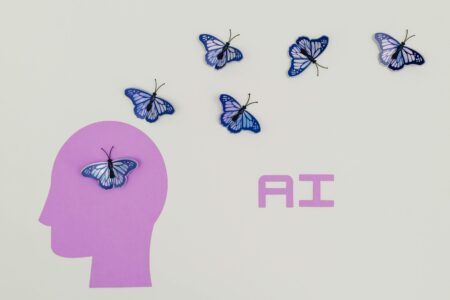If you’ve ever posted something to the internet—a pithy tweet, a 2009 blog post, a scornful review, or a selfie on Instagram—it has most likely been slurped up and used to help train the current wave of generative AI. Large language models, like ChatGPT, and image creators are powered by vast reams of our data. And even if it’s not powering a chatbot, the data can be used for other machine-learning features.
Tech companies have scraped vast swathes of the web to gather the data they claim is needed to create generative AI—with little regard for content creators, copyright laws, or privacy. On top of this, increasingly, firms with reams of people’s posts are looking to get in on the AI gold rush by selling or licensing that information. Looking at you, Reddit.
However, as the lawsuits and investigations around generative AI and its opaque data practices pile up, there have been small moves to give people more control over what happens to what they post online. Some companies now let individuals and business customers opt out of having their content used in AI training or being sold for training purposes. Here’s what you can—and can’t—do.
There’s a Limit
Before we get to how you can opt out, it’s worth setting some expectations. Many companies building AI have already scraped the web, so anything you’ve posted is probably already in their systems. Companies are also secretive about what they have actually scraped, purchased, or used to train their systems. “We honestly don’t know that much,” says Niloofar Mireshghallah, a researcher who focuses on AI privacy at the University of Washington. “In general, everything is very black-box.”
Mireshghallah explains that companies can make it complicated to opt out of having data used for AI training, and even where it is possible, many people don’t have a “clear idea” about the permissions they’ve agreed to or how data is being used. That’s before various laws, such as copyright protections and Europe’s strong privacy laws, are taken into consideration. Facebook, Google, X, and other companies have written into their privacy policies that they may use your data to train AI.
While there are various technical ways AI systems could have data removed from them or “unlearn,” Mireshghallah says, there’s very little that’s known about the processes that are in place. The options can be buried or labor-intensive. Getting posts removed from AI training data is likely to be an uphill battle. Where companies are starting to allow opt-outs for future scraping or data sharing, they are almost always making users opt-in by default.
“Most companies add the friction because they know that people aren’t going to go looking for it,” says Thorin Klosowski, a security and privacy activist at the Electronic Frontier Foundation. “Opt-in would be a purposeful action, as opposed to opting out, where you have to know it’s there.”
Read the full article here








